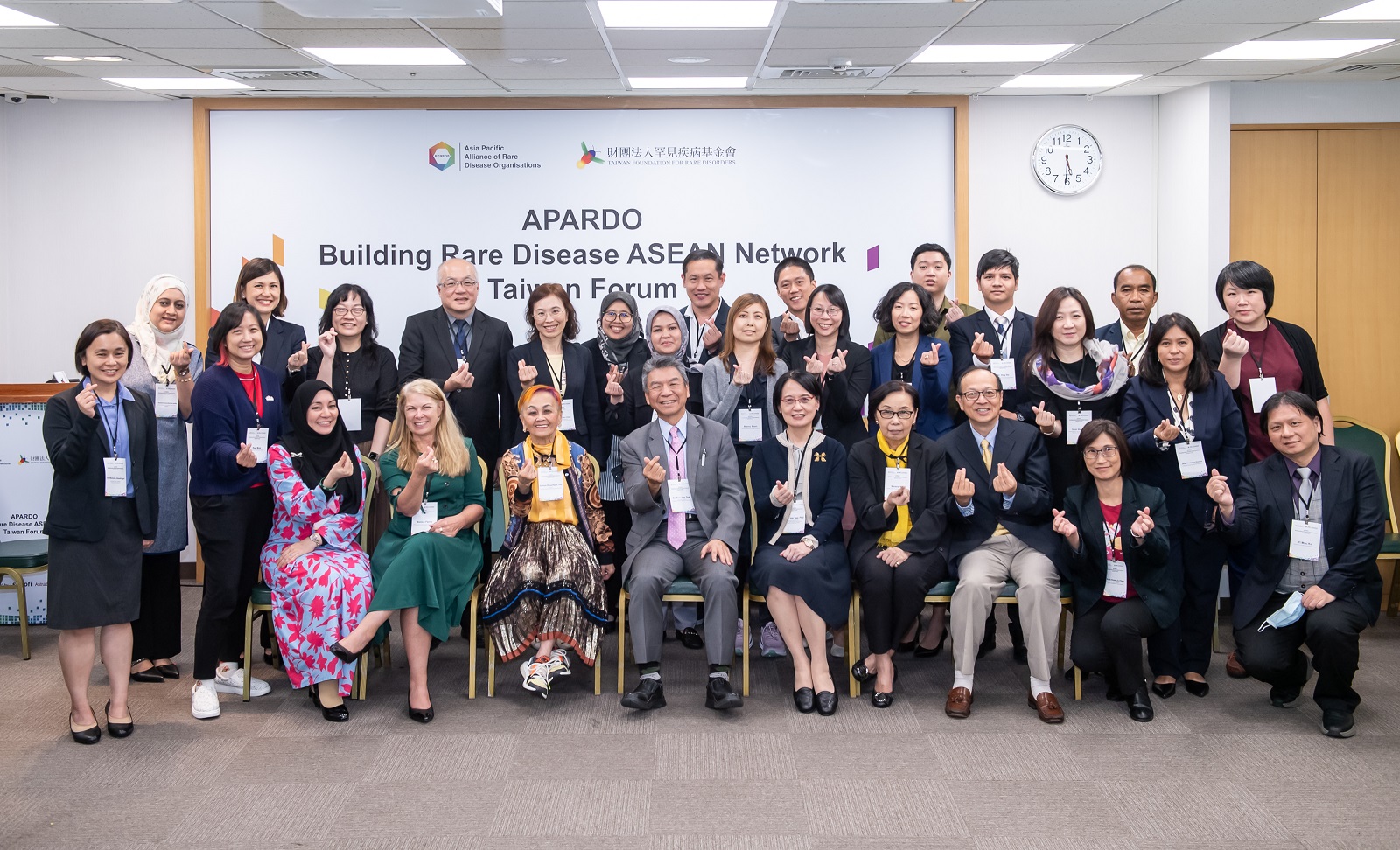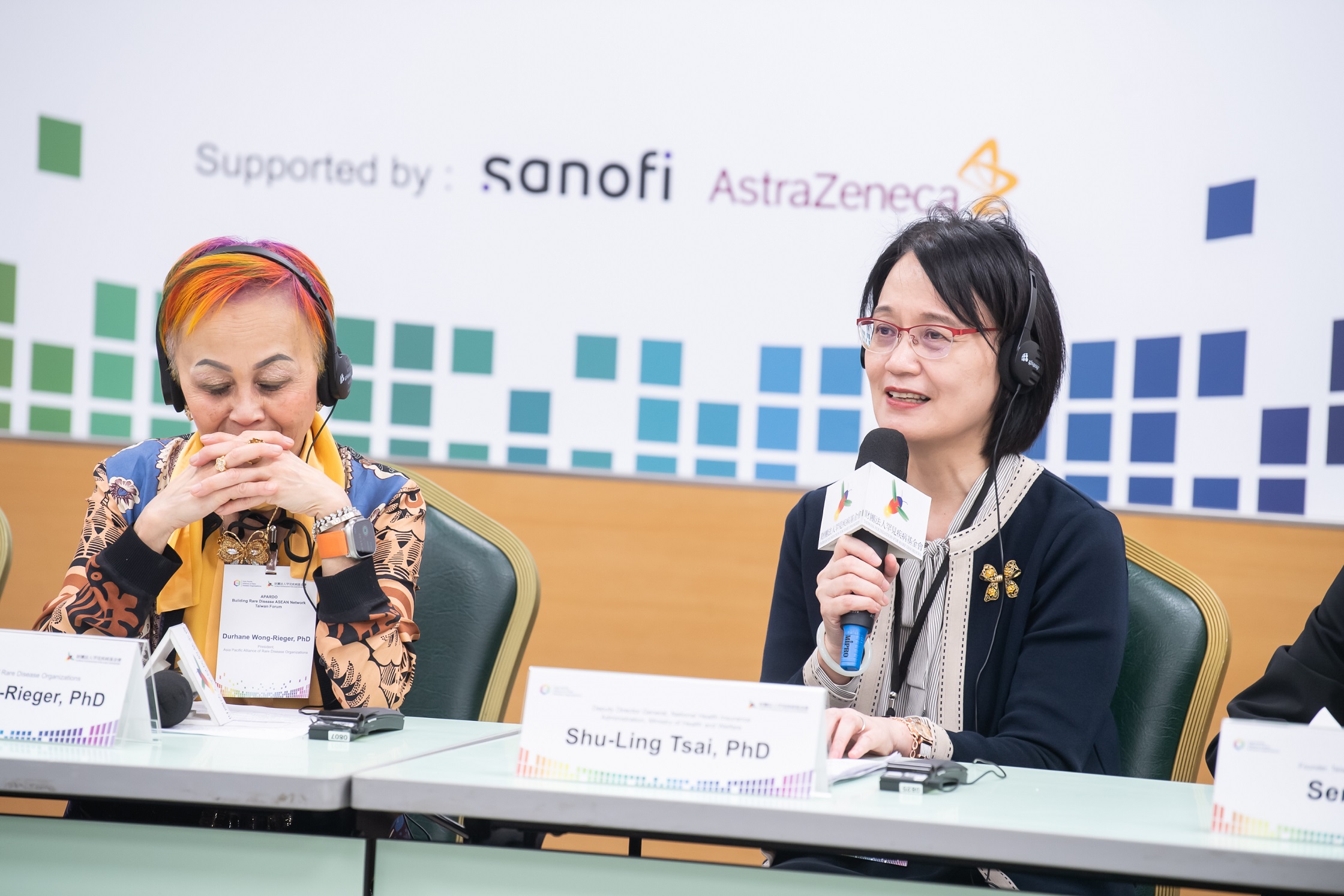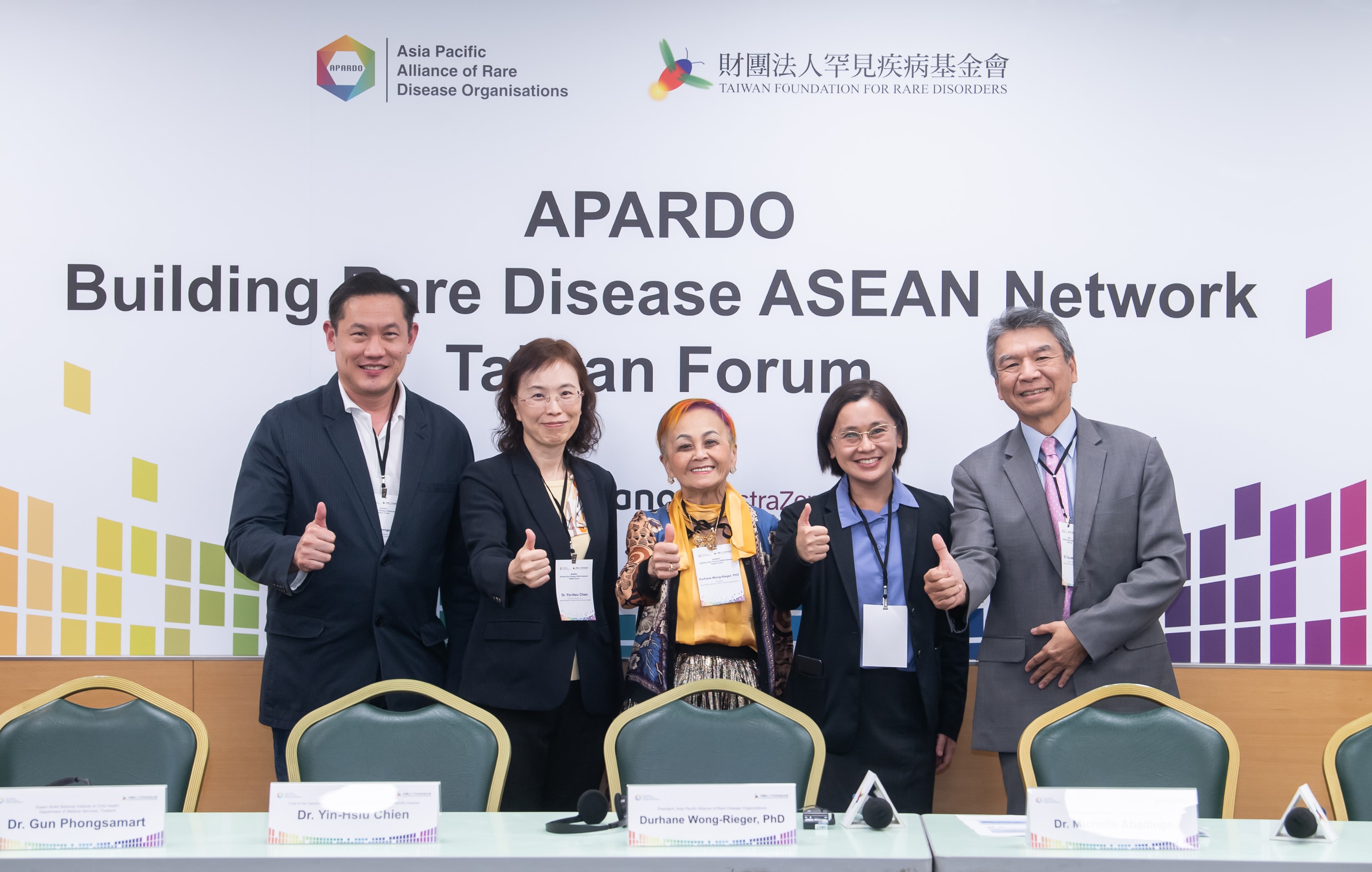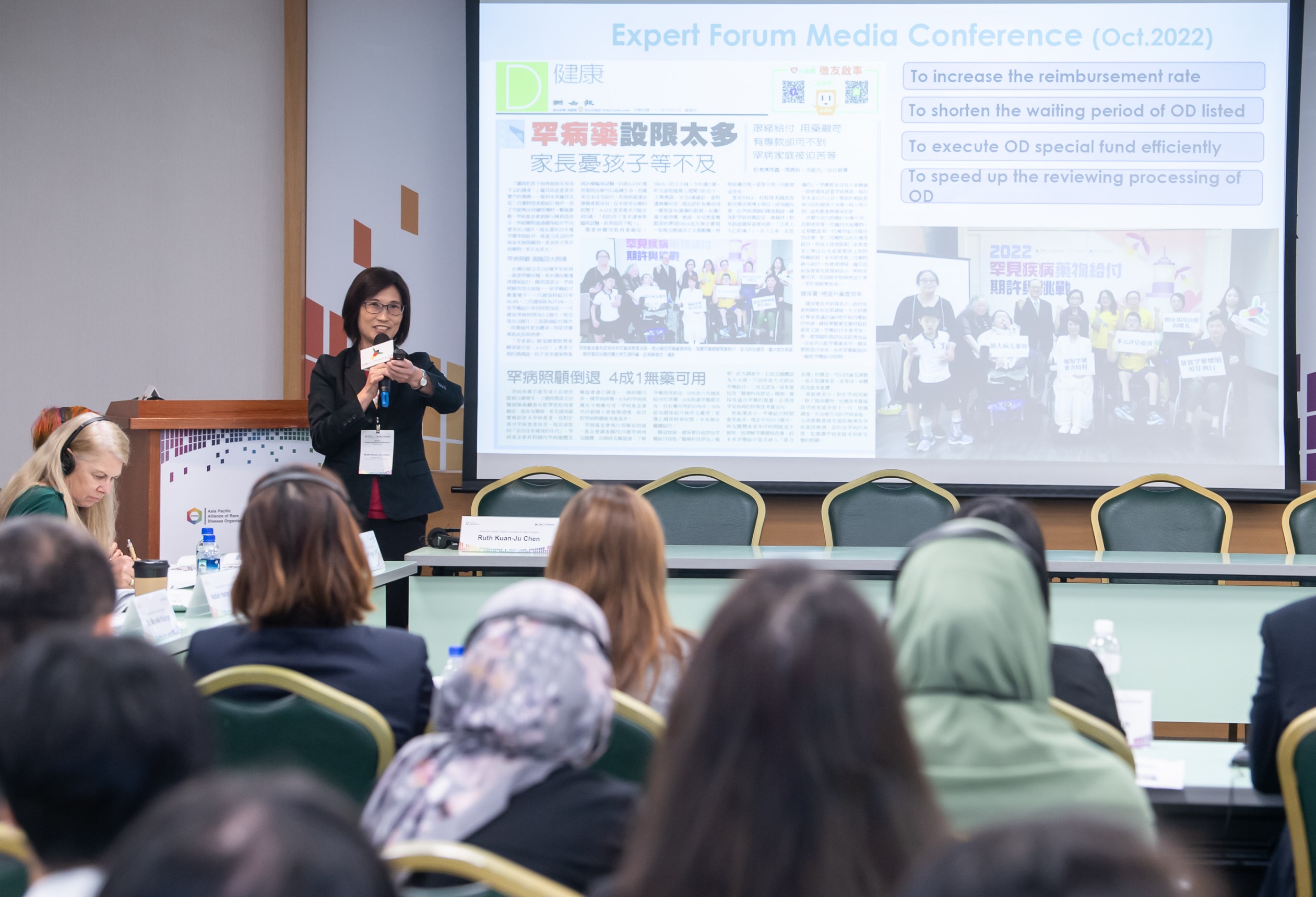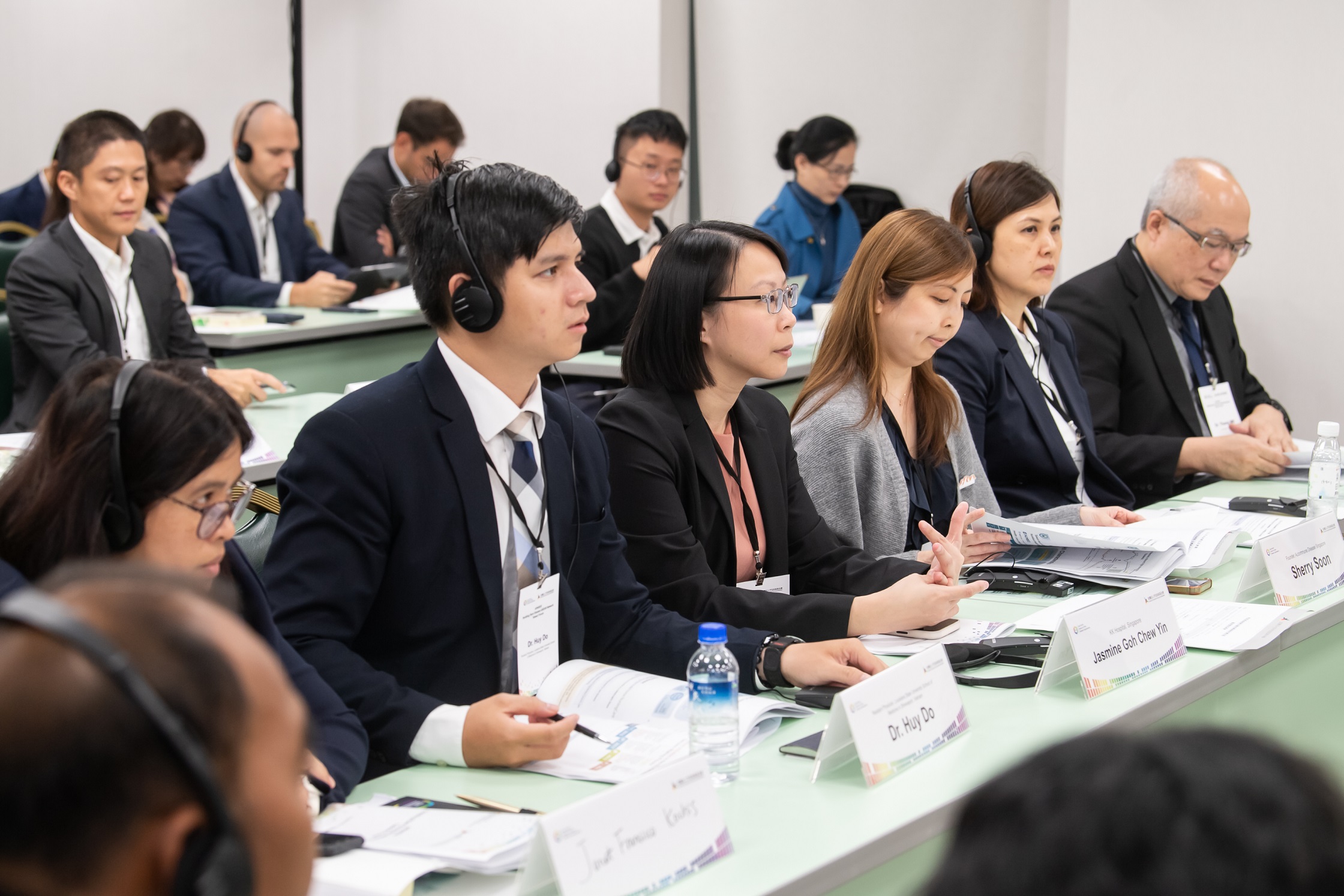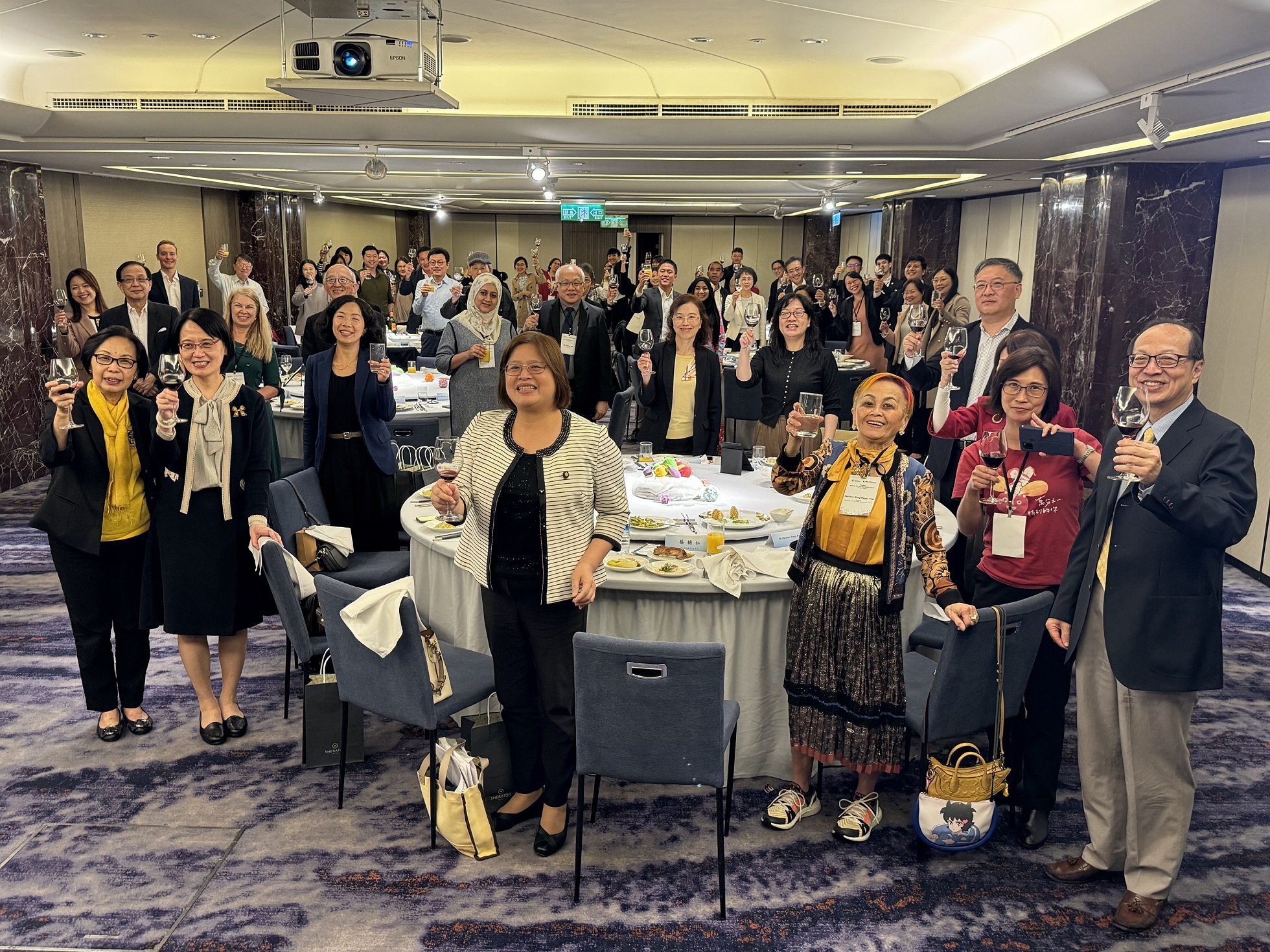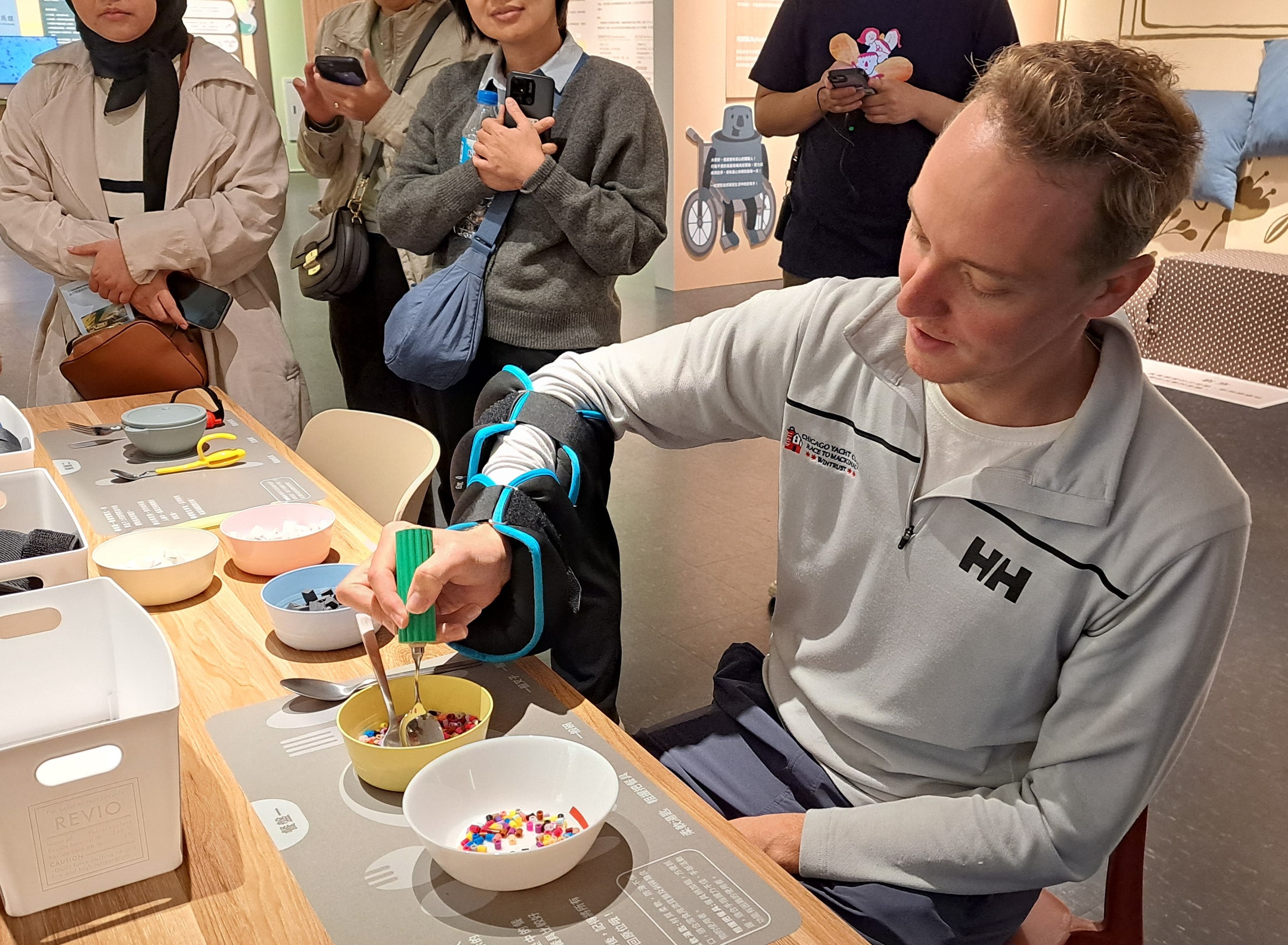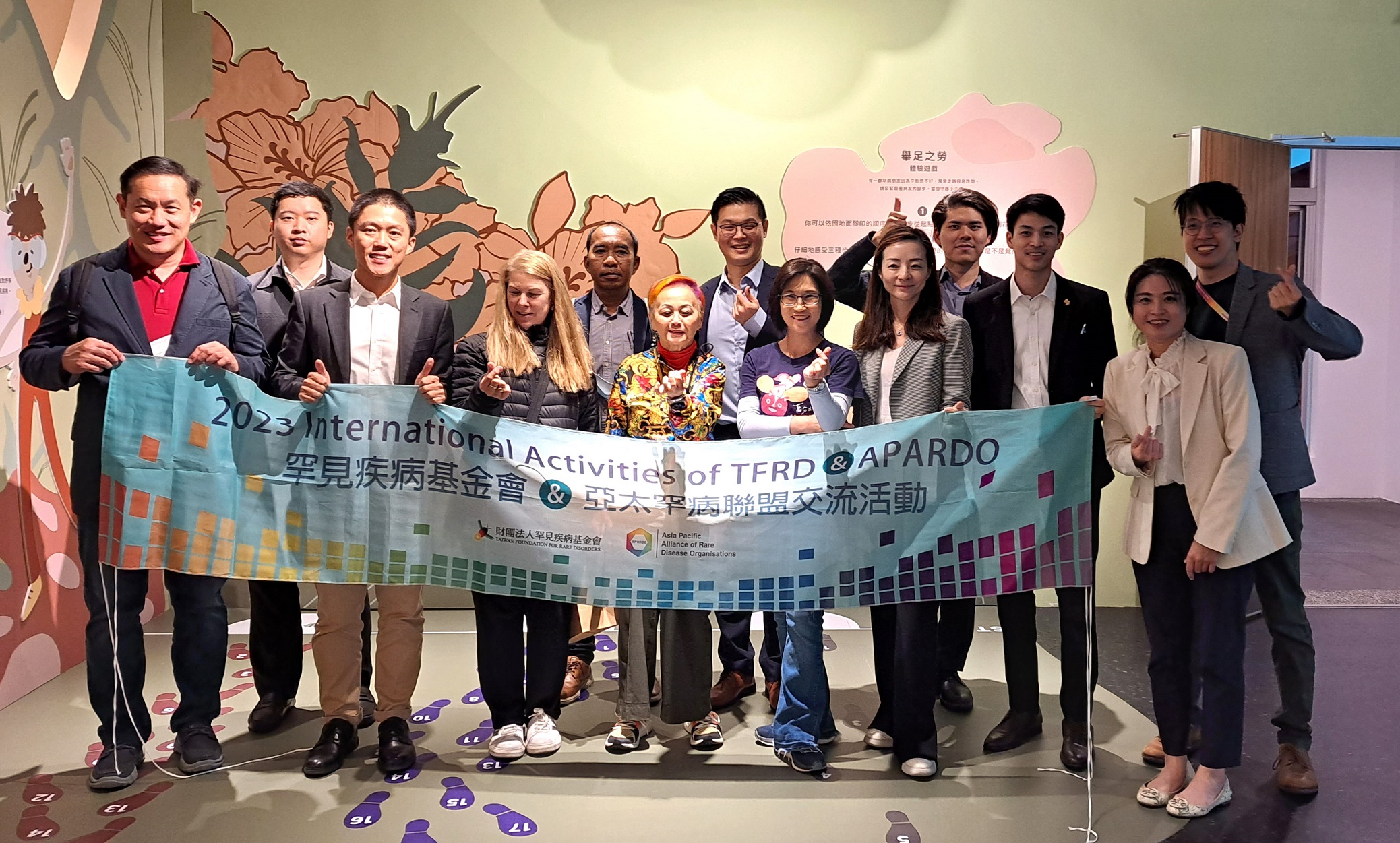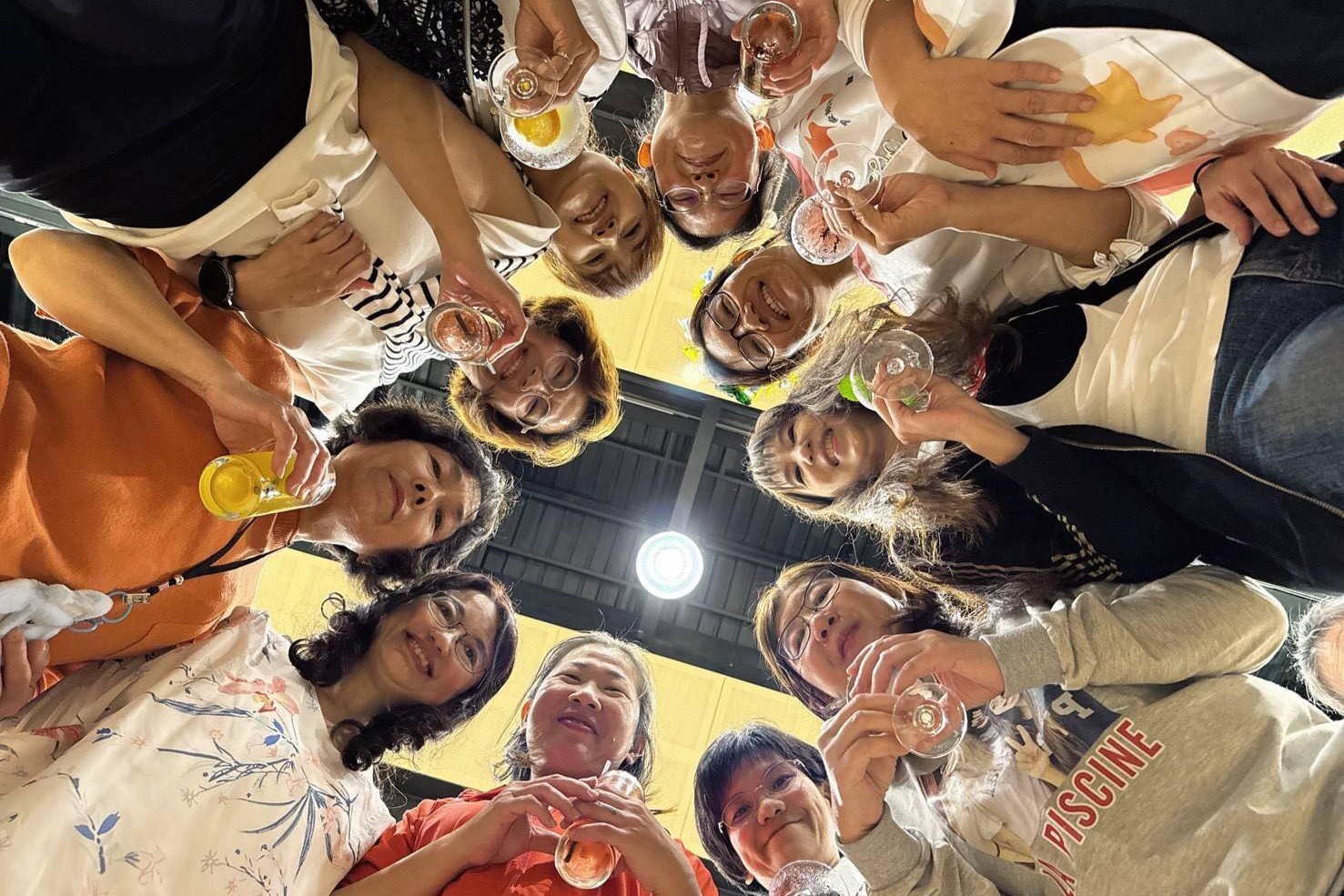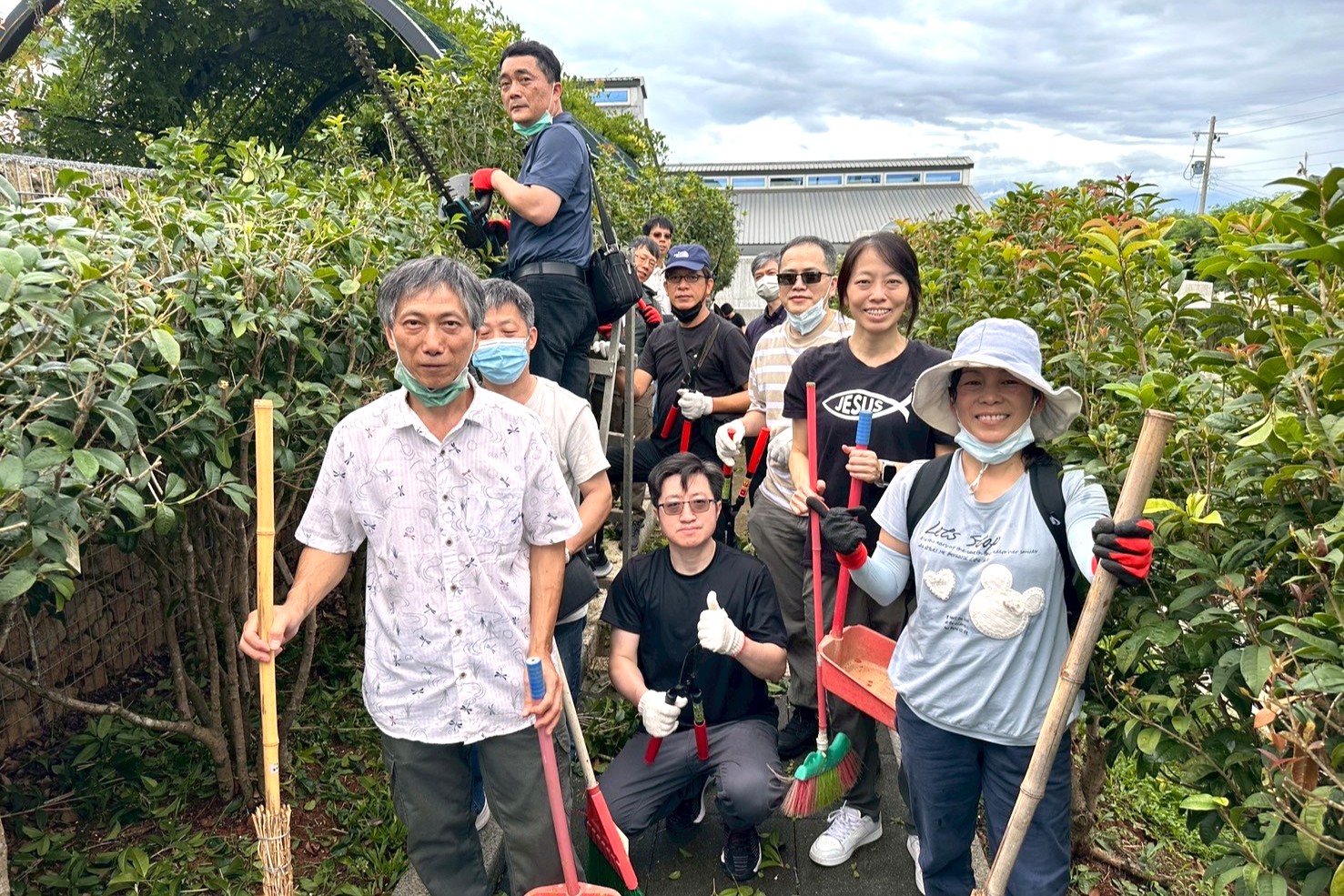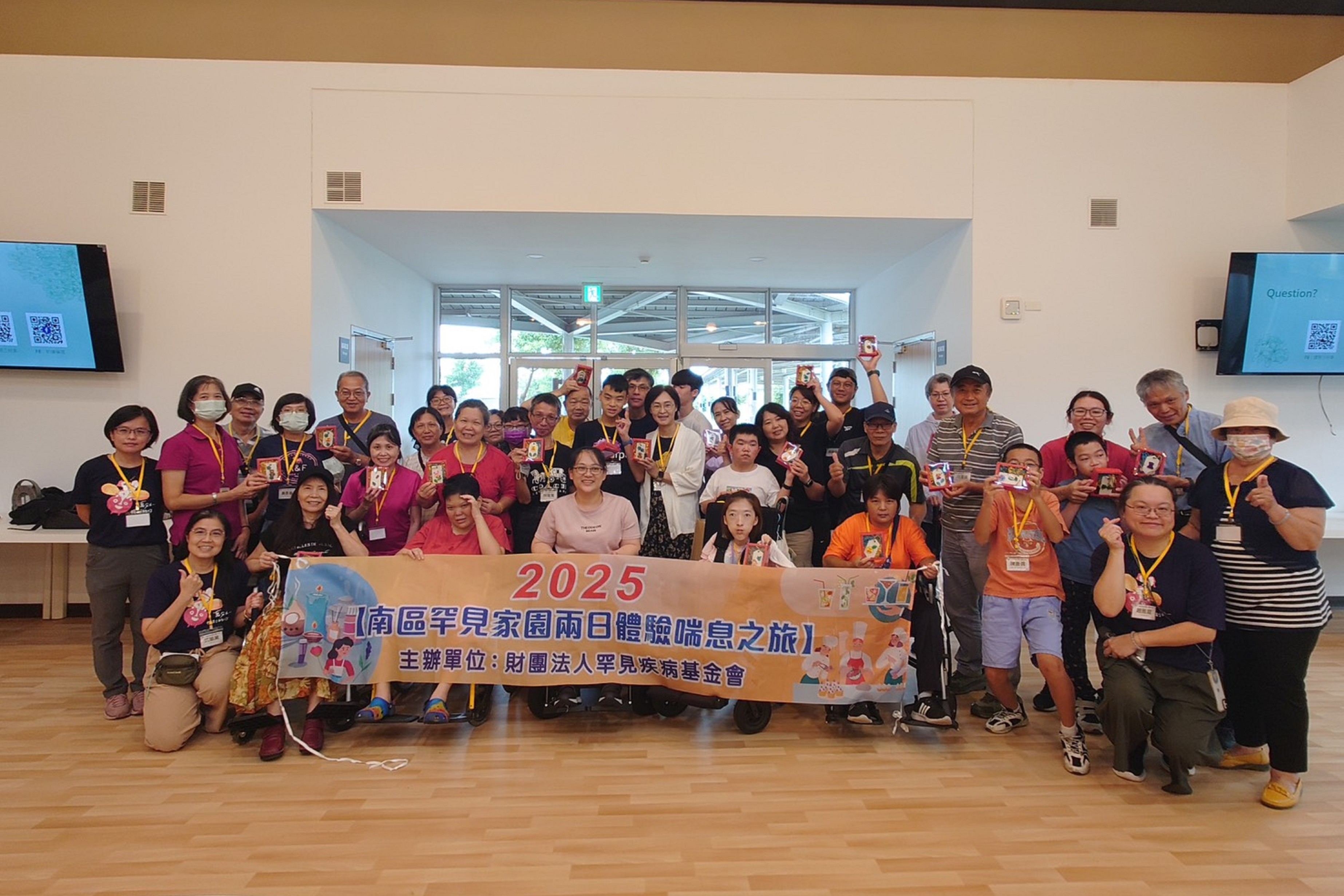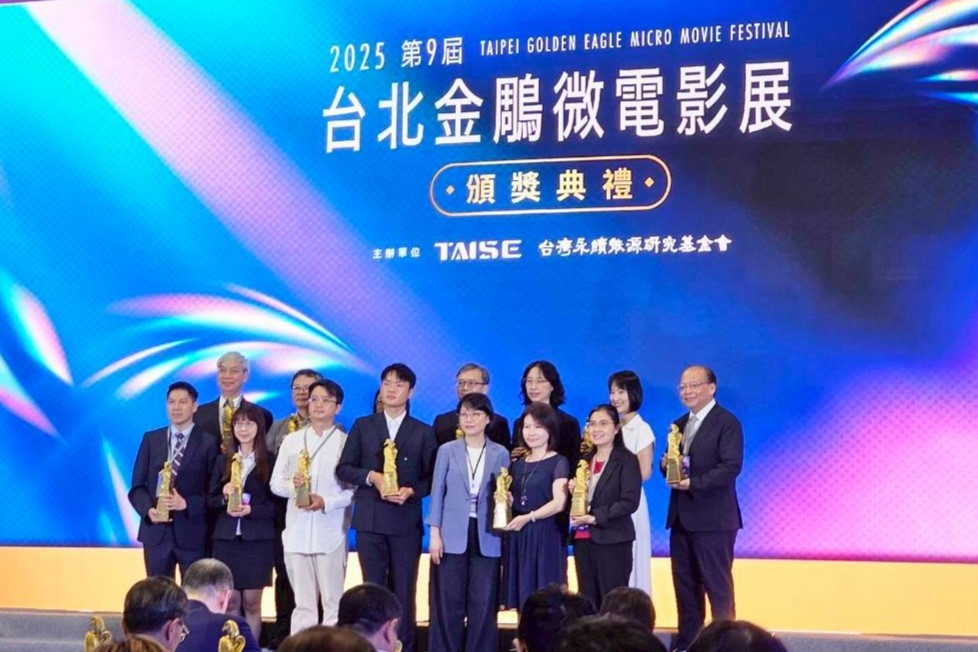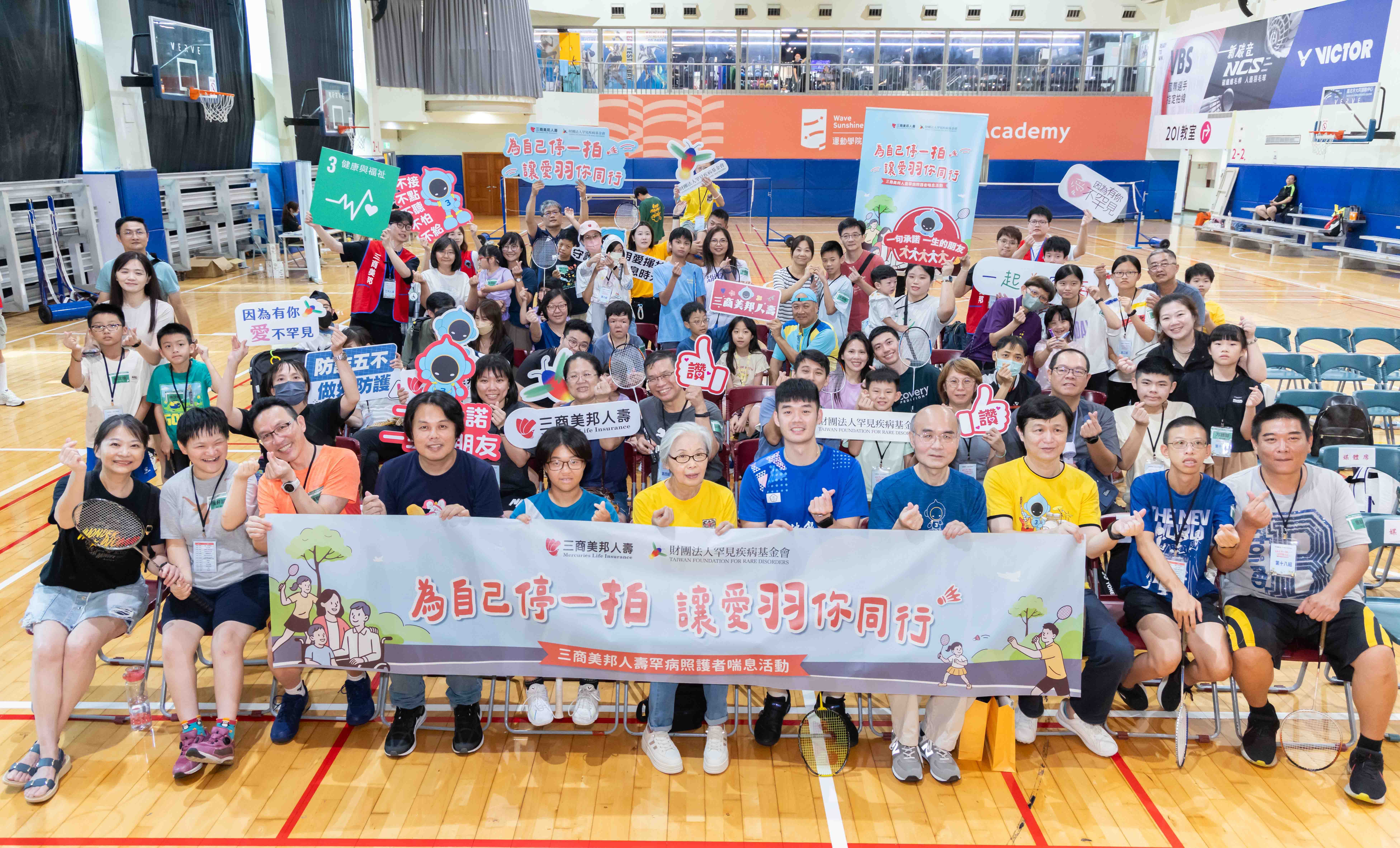News
Taiwan Roundtable oF APARDO
In 2019, the Asia Pacific Alliance of Rare Disease Organisations (APARDO) held its annual summit in Taiwan for the first time. This year (2023), with lockdowns lifted in several regions, APARDO once again selected Taiwan to host a significant event—the "Building the ASEAN Network for Rare Diseases – Taiwan Roundtable"—scheduled for the afternoon of Monday, November 13.
Under the leadership of Dr. Durhane Wong-Rieger, President of APARDO, the roundtable will bring together rare disease representatives, including countries such as Australia, Thailand, Malaysia, Indonesia, Singapore, the Philippines, and Vietnam. The Taiwan Foundation for Rare Disorders (TFRD) was honored to host this prestigious gathering.
At the roundtable discussion, three prominent Taiwanese representatives – Deputy Director General Shu-Ling Tsai, Director General Yin-Hsiu Chien and Executive Director Ruth Chen – addressed an international audience, shedding light on Taiwan’s advancements in rare disease policy, treatment options, and patient advocacy.
Deputy Director General Shu-Ling Tsai, from the National Health Insurance Administration under the Ministry of Health and Welfare, began by outlining Taiwan's National Health Insurance (NHI) system. She emphasized the strengths of the NHI database, focusing on its role in the reimbursement strategies for innovative orphan drugs and medical technologies, under the theme “National Health Insurance Reimbursement for Innovative Orphan Drugs/Medical Technology Strategies.”
Tsai acknowledged, however, that one of the greatest hurdles in the realm of rare diseases lies in the uncertain long-term efficacy of new treatments. With rapidly emerging therapies, financial strain remains a challenge for the government. Tsai emphasized expanding financial capacities to ensure more patients benefit from advanced medical solutions.
Responding to the roundtable's central theme, Dr. Durhane emphasized the importance of data sharing, stating, “It is crucial to exchange data. I hope that in the future, Taiwan can extend its influence across the region by sharing its data and expertise.”
Dr. Huy Do from Vietnam stated, "Currently, we are actively advocating for treatment for spinal muscular atrophy (SMA), but the lack of data sharing among hospitals in Vietnam makes it impossible to grasp the true condition of patients. Additionally, Vietnam has no official definition of rare diseases, which poses significant challenges in determining who qualifies for treatment and reimbursement."
Taiwan is a model for other countries in terms of diagnosis and treatment
The second speaker, Dr. Yin-Hsiu Chien, Director of the Department of Genetic Medicine at National Taiwan University Hospital, emphasized the importance of a comprehensive policy in early diagnosis and treatment during her presentation. Drawing from her vast clinical experience, she highlighted successful cases involving Pompe disease, Citrin deficiency, AADC deficiency, and spinal muscular atrophy (SMA). Taiwan's robust medical team, equipped with advanced technology and strong policy backing, has led to a neonatal screening coverage exceeding 99%, a standard comparable to that of leading nations.
In contrast, Philippine geneticist Michelle pointed out the challenges faced by her country due to its archipelagic geography. With medical services scattered across numerous islands, providing consistent follow-up care for newborns diagnosed with diseases remains a significant hurdle despite screening efforts.
Meanwhile, Dr. Gun from Thailand shed light on the complexities within Thailand's healthcare system. The existence of multiple healthcare plans, each with varying standards, creates difficulties for healthcare providers. Furthermore, the lack of coordination among different healthcare systems and providers compounds the problem, hindering efficient medical care delivery.
Formulate a holistic strategy and leverage the collective power of the civilian groups
The final speaker of the session, Executive director of TFRD, Ruth Chen, delivered an impactful presentation on “The Contribution of Taiwanese Patient Groups to the Development of Rare Drugs.” Chen commenced her talk by detailing the arduous journey toward securing the first rare disease drug, emphasizing the critical milestones achieved along the way.
She highlighted the recent case of Familial Amyloid Polyneuropathy (FAP) to illustrate the pivotal role of civilian groups in the drug development process, spanning from clinical trials to compassionate use programs. These patient groups not only consolidate and voice the concerns of patients but also facilitate the sharing of medication experiences, establish support networks, draft petitions, and engage with the media. Furthermore, they act as essential conduits for dialogue between patients and government officials.
“Advocacy cannot be done alone,” Chen stated emphatically. “Patient groups require a series of action strategies to navigate the complexities of drug reimbursement.”
Monica, Director of APARDO, emphasized the importance of perseverance in the fight for better medical care, stating, “The key to quality healthcare for patients today is to continue our active efforts to achieve our goals.”
Following Monica's remarks, Rae, a parent from Singapore whose child suffers from a rare disease, expressed her thoughts with a heavy heart: “Singapore’s population is small, and the number of rare disease patients is even smaller. It’s very difficult to gain government support. Meanwhile, non-governmental organizations are still in their infancy here. To reach the same level of support as Taiwan, it seems we still have a long road ahead…”
Professor Min-Chieh Tseng, Co-founder of TFRD, urged attendees to remain hopeful. He noted that while each country faces unique challenges, international cooperation and sharing of experiences can pave the way for understanding and progress in the future.
The guests were filled with warmth and moved by the Taiwanese patient's talent shows
After a full day of intensive brainstorming, participants temporarily set aside their academic discussions and gathered at the Sheraton Grand Taipei Hotel for a sumptuous dinner. As part of the host country’s hospitality, TFRD arranged a special performance by Charlie Wu, a visually impaired pianist and composer diagnosed with Leber's hereditary optic neuropathy. Wu captivated the audience with his original composition "Reborn" and a medley of traditional Taiwanese folk music.
Additionally, Yi-Chun Wei, known as the "half-sized giant" due to his battle with McCune Albright syndrome, delivered a heartfelt performance of the inspirational songs “I Believe” and “You Raise Me Up” with his rich, resonant voice. The powerful and moving performances by both artists left a lasting impression on the international guests, adding a memorable highlight to the evening.
Visit Asia's new highlight --- Rare Disease Welfare Center
On Tuesday, November 14, a delegation of about a dozen guests from APARDO and the APEC Rare Disease Network visited the Rare Disease Welfare Center (RDWC) in Hsinchu. During the visit, participants had the opportunity to experience the specialized bathing equipment and explore the Genetic Education Center, where they were introduced to a variety of innovative teaching aids. The guests also strolled along the Osmanthus Trail and enjoyed the serene ambiance of the Healing Garden.
The visit concluded with a hands-on workshop led by a Rare Craftsman, Xin Hui, where the guests created intricate plant art. This creative activity marked a memorable conclusion to their enriching journey in Taiwan.
Translator: David Lee (Becker Muscular Dystrophy)

